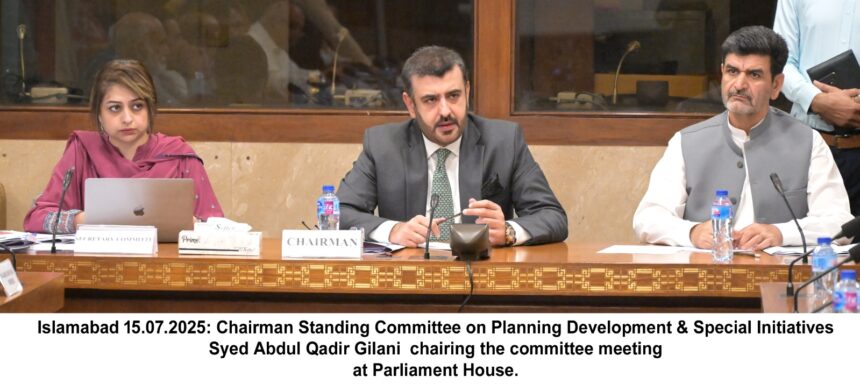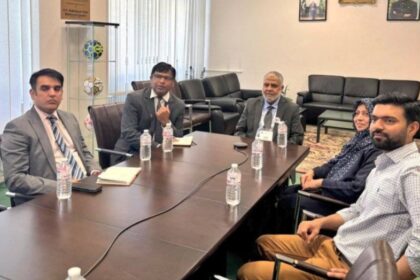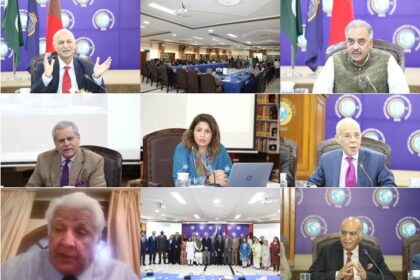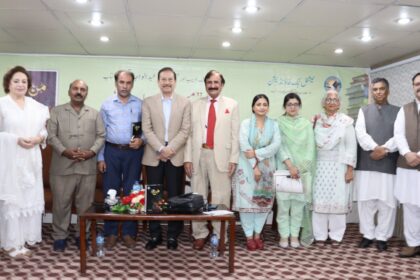A meeting of Pakistan’s National Assembly Standing Committee on Planning, Development and Special Initiatives saw heated debate over recent regulatory failures following the deadly Multan LPG tanker explosion. Lawmakers sharply criticized gaps in safety and oversight, demanding stronger enforcement and higher compensation for victims, while also reviewing the slow progress of federal development projects and calling for improved disaster prevention policies.
The committee, chaired by Syed Abdul Qadir Gillani, opened its session with a forceful discussion on the Multan LPG tanker blast, highlighting a disturbing pattern of similar incidents nationwide. Chairman Gillani condemned the growing frequency of such tragedies, calling the response “inadequate,” and insisted that authorities must identify and hold those responsible. Members raised further alarms about hazardous LPG sales in plastic bags in Khyber Pakhtunkhwa and widespread theft in Sindh, citing a pervasive lack of regulatory control.
During the session, the committee levelled strong criticism at the Oil and Gas Regulatory Authority (OGRA) for failing to monitor and regulate LPG transporters. Out of an estimated 2,000 LPG tankers (or “bowsers”) in operation across Pakistan, just 800 are reportedly registered with the Department of Explosives, and only 247 hold proper OGRA licenses—exposing significant lapses in oversight. Members questioned the scarcity of inspections, the absence of robust tracking systems, and the poor coordination between OGRA and safety authorities.
In response, OGRA officials acknowledged the gravity of the regulatory shortcomings, announcing that a regional office had been opened in Multan alongside awareness campaigns. They admitted that current legislation fails to address the scale of illegal operations and appealed for help in strengthening penalties and enforcement through parliamentary support for legislative amendments. However, committee members expressed dissatisfaction with the process of holding those responsible to account, and called the announced Rs. 600,000 in compensation per victim “grossly inadequate.” Immediate suspension of licenses for contractors under investigation was demanded, along with new, stringent safety and inspection protocols. The committee resolved to revisit the issue with a detailed OGRA presentation on licensing and enforcement at its next session.
The committee also reviewed progress on federal development projects, hearing a report from the Sub-Committee led by Syed Sami Ul Hassan Gillani. The report highlighted improvements in ministry coordination, yet persistent bureaucratic inefficiencies and corruption remain, particularly within Pakistan Infrastructure Development Company Limited (PIDCL) and projects previously managed by the Public Works Department (PWD). To improve oversight, the committee reconstituted the Sub-Committee, again placing Syed Sami Ul Hassan Gillani as Convener, to review ongoing PWD-linked projects and present findings within thirty days. Members debated whether to reform and supervise PWD or establish a new entity for federal-provincial coordination, underscoring the need for strengthened institutional capacity and greater involvement of elected representatives in selecting project partners for their constituencies.
In other business, the committee directed the Ministry of Planning to deliver a detailed, district- and division-wise breakdown of new Public Sector Development Programme (PSDP) projects for the upcoming financial year. Concerns were also raised over recurring infrastructure damage caused by seasonal floods. The committee urged the government to develop a comprehensive national policy focused on flood prevention and mitigation, calling for a proactive instead of reactive approach and further consultations with both federal and provincial stakeholders.
The meeting concluded with a vote of thanks and a special prayer in memory of the late father of MNA Mr. Zulfiqar Bachani. Attendees included several committee members and senior officials from the Ministry of Planning, Finance Division, OGRA, and other relevant departments.











